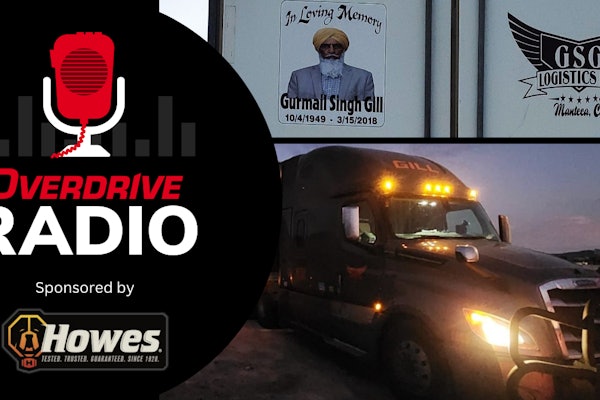When I read your editorial entitled “Getting Onboard” (Editor’s Journal, February 2008), my first reaction was I thought you showed some balance – until I saw that ultimately you caved.
Your premise that it’s coming and we just better sit back and take it is faulty and here’s why: I am amazed at how many who do not drive (and may never have) are so eager to give up the freedoms and liberty (such as the right to privacy) of those of us who do drive.
I totally disagree with mandating EOBRs (electronic onboard recorders) in every commercial vehicle. How many freedoms are we supposed to give up in the name of “safety”?
I support the government’s attempt to try to avoid another 9/11 attack on America, but mandating EOBRs is an invasion of individual drivers’ freedom and liberty, and we should never “sit back and take it.”
For the last seven and a half years I have been pulling a tanker hauling hazardous, flammable materials. We know we are a segment of the trucking industry that will be monitored by EOBRs, and already are seeing them implemented in the form of “peoplenet” with “e-logs.” I just do not believe all areas of trucking should be forced to have EOBRs.
Robert C. Cox
Waite Park, Minn.
Let’s Tie Our Own Noose?
Just read your column in Truckers News. I’m not sure what your experience in trucking is. I have 25 years in the industry, and I have no desire to have somebody watching over me all the time.
There are hundreds of thousands of drivers out here who have millions of miles of very safe driving on record. I also fit that bill. The so-called safety groups will take a few incidents and group all truckers into that group.
With all the records available to enforcement, the only reason I can see for EOBRs is to make their job easier.
What I got from your column is this: EOBRs are going to eventually be on all trucks, so let’s make it easier for the DOT and FMCSA to hang us. Let’s tie our own noose.
Vernon Jordan
Leavenworth, Kan.
EOBRs Will Not Make Safer Drivers
Randy, the reason you get angry letters and calls every time you write about EOBRs is not just because of the fears you stated about privacy. It’s because in fact you do not fully understand the opposition’s viewpoint.
It’s not just about Big Brother. It’s not just about how the information will be used against drivers. It’s more about the suggestion by proponents that EOBRs are the answer to compliance and will ensure the safety of truck drivers and those around them. This is simply a complete falsehood for many reasons. EOBRs do not ensure compliance and do nothing to address the underlying issue of the uncompensated misuse of drivers’ time, such as loading/unloading abuses.
An EOBR is still dependent on a driver’s input to ensure overall compliance, no different than completing a paper log. The hours-of-service rules require that a daily record be kept of all time spent off-duty, in the sleeper berth, driving and non-driving work activity. Even though an EOBR can record how long the truck has been moving, if the driver does not manually enter his non-driving work time into the EOBR, but instead enters the time as off-duty, the EOBR will show the driver as available to drive. In fact, as an example, EOBRs will still permit someone performing compensated work for a person other than the motor carrier to drive without showing a violation.
As FMCSA touted in its proposed rule, EOBRs will permit motor carriers to monitor, in real-time, the location and duty-status of their drivers. Carriers will be able to notice when a driver has stopped the truck during their on-duty time. Perhaps the driver has decided to take a break and get rest. Such breaks do not suspend the running “clock” of the 14-hour work-day under the HOS rules. The carrier will be able to instantly instruct the driver to return to the road and maximize his or her driving time. Carriers will also be able to instruct drivers, whenever they want, to log their on-duty, not-driving work as off-duty, thereby preserving their on-duty driving time. Both practices remove what little discretion drivers have today to resist economic pressures.
Rick Craig
Director of Regulatory
Affairs, OOIDA
Write us
Send your letters to Randy Grider, Truckers News, 3200 Rice Mine Road N.E., Tuscaloosa, AL 35406, by fax to (205) 750-8070 or by e-mail to [email protected].
Letters must include your name, address and phone number for verification and must be no longer than 500 words.
Letters are subject to editing.






